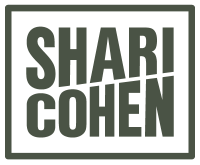A recent client wanted to expand her influence to inspire support for a social innovation she had developed. She credited her very successful career trajectory to always being seen as the person who had the answers, whose projects were perfect.
However, the flip side of her strengths—her fear of imperfection and unanswered questions—hindered interactions with her team, colleagues, and people higher up at her company. As we worked together, my client discovered that the path to her greater influence involved letting go of control. She needed to accept not always feeling like the expert and to set aside her desire to receive full credit for the outcome.
While it can feel gratifying (and safe) to be the expert who has all the answers, our assumptions and biases can block us from seeing other possibilities. When we evaluate challenges, we unconsciously scan for patterns that match our own experience and make a conclusive leap.
Pattern recognition is a valuable skill when quick and decisive action is required. But it can limit our perspective as we may not see all the relevant details and possibilities. When someone comes to us with a problem and we dispense an answer, we limit team members’ innovative capacity. We miss different, potentially more effective solutions.
The value of curiosity
In the book Good to Great, author Jim Collins shares what his rigorous research revealed to be key characteristics of leaders at great companies. He identified “tenacious humility” as the essential element of these highest performing leaders: they invariably maintain a stance of not knowing even as they doggedly drive results.
Leaders with tenacious humility involve many partners in the process. Their effectiveness stems from being able to ask crucial questions—and not having all the answers. As my client courageously experimented with applying this new framework of tenacious humility, she changed how she viewed her own value and contribution.
She began letting go of getting credit and increasingly involved her team and other stakeholders in her company as they worked collaboratively on open-ended problem-solving. She became willing to share partially formed ideas rather than finished concepts. She took risks as she connected with people she needed to influence, and obtained their guidance and buy-in to refine her initiative for launch. Soon, she was invited to more meetings and sitting at more (virtual) tables than ever before as the innovative project she led moved toward successful completion faster than she had anticipated.
Pivotal questions
Being able to ask powerful questions is a crucial leadership skill. When you are curious, humble and genuinely interested in learning, your questions can open up discussion and expand the realm of possible solutions. To elicit new insights try asking:
- If you could change one thing, what would it be?
- What are some other ways we can approach this?
- What are the best and worst aspects of our current approach?
- Imagine we have finished this project; what steps would we take to get there?
- What is possible here?
- What would the impact be if we didn’t do this?
Less than helpful questions
Avoid asking closed ended questions (that require a yes or no answer) except to clarify information. Stay away from wording that might confirm your own beliefs, or boost your ego because these tend to shut down thinking and limit new ideas such as: “Wouldn’t that be disastrous for the team?” Typical unproductive queries begin with the words, “Have you. … or Did you. …?
When I counsel leaders to ask open-ended questions and help them practice this skill, they initially find this difficult and uncomfortable. They wonder what value they would provide if they don’t offer advice, answers and solutions. While these skills feel counterintuitive for many, people who learn to check their ego, remain curious and listen more carefully will accelerate their journey toward success.


0 Comments